Guide to retiring in Thailand
After working for so many years, Thailand’s sabai-sabai lifestyle is one that many upcoming retirees crave. The country’s low cost of living, warm weather, and smiling locals make it a premier retirement destination for foreigners.
So, how do you retire in Thailand? While many people swear by the tourist visa-run method, it’s inadvisable as consequences include being barred from entry for years.
Below are visa options for retirees, steps to obtaining them, and a cost-of-living breakdown for foreigners looking to retire in the Land of Smiles.
Retirement visas: requirements and application process
Thailand has three main types of retirement visas, all of which do not allow retirees to work during their stay in the country.
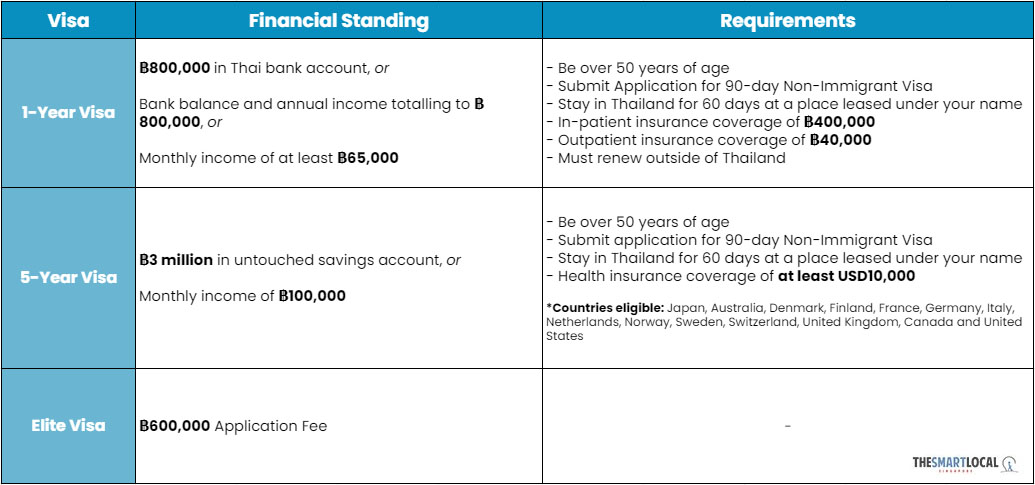
Non-Immigrant O-Long Stay Visa
Commonly known as the ‘one-year visa’, the Non-Immigrant O-Long Stay Visa allows retirees to stay in Thailand for one year, with the possibility of renewal. Citizens staying in Thailand under this visa must report to any of Thailand’s immigration offices to do a 90-day check-in.
Requirements
- Be over 50 years of age
- Have health insurance that covers at least ฿400,000 (~USD12,800) in inpatient care and ฿40,000 (~USD1,300) in outpatient care.
Financial requirements
In order to obtain a one-year retirement visa, applicants need to provide proof of financial stability. Thailand’s immigration system allows applicants to do this in three different ways:
Lump-sum deposit
Have ฿800,000 (~USD25,600) in a Thai bank account in the applicant’s name at least two months ahead of application date
Applicants will also need to provide a certified letter from their bank stating that at least ฿800,000 was deposited in the Thai bank account from an overseas source, and has been cleared at least two months prior to the date of your retirement visa application.
For those who choose the following financial requirements, we’d recommend applicants start their application at least one year in advance.
Proof of monthly income
Applicants must provide a bank letter certified by their nation’s embassy in Thailand confirming the monthly income of ฿65,000 (~USD2,076).
In the event that their embassy does not provide this, applicants can instead present a certified bank letter proving that they’ve deposited ฿65,000 (~USD2,076) into a Thai bank account for the past 12 months.
Combination
For this option, applicants can show that their bank account combined with their annual income totals to ฿800,000 (~USD25,556).
Applying for the 1-year retirement visa in Thailand
Note: People on a 30-day tourist visa cannot apply for a retirement visa in Thailand without first obtaining a 90-day Non-Immigrant Visa.
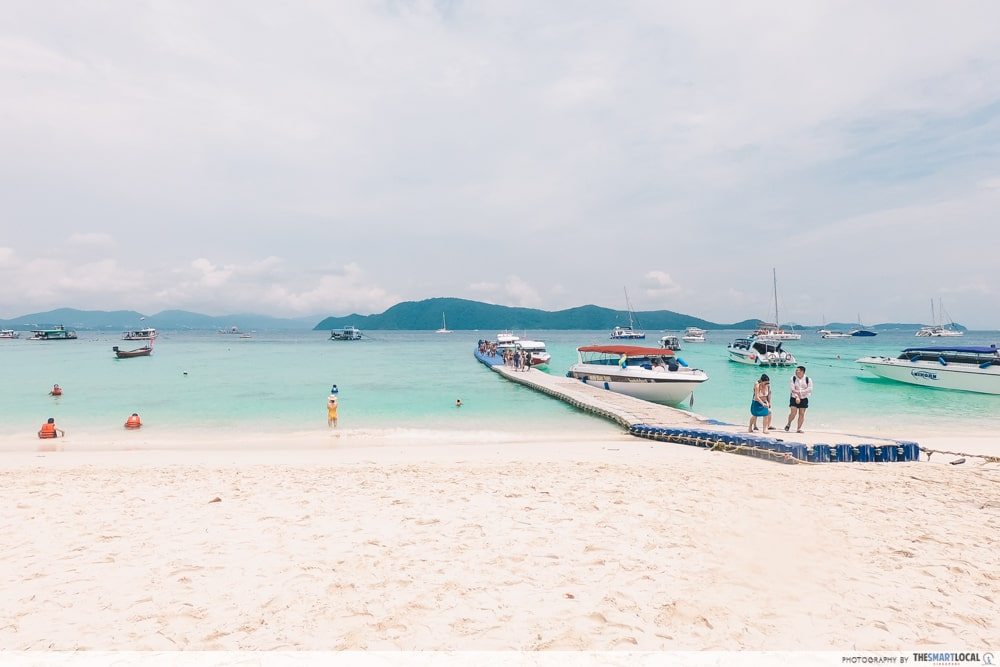 Phuket is becoming one of the top destinations for retirees in Thailand. It also happens to be the first province to open to quarantine-free international visitors, so foreigners can check if this island destination is their future home.
Phuket is becoming one of the top destinations for retirees in Thailand. It also happens to be the first province to open to quarantine-free international visitors, so foreigners can check if this island destination is their future home.
Required Documents
- Passport with an expiration date at least one year after application date.
- Proof of funds, i.e. bank letters and an updated passbook from your bank.
- Proof of insurance, i.e. policy document issued by the provider detailing the amount and period covered.
- If your insurance is from a provider outside of Thailand, you will be required to submit a Foreign Insurance Certificate.
- Two 4CM x 6CM passport photos taken within the past six months.
Applicants must first obtain a 90-day Non-Immigrant Visa from the Immigration Office.
If approved, residents will have to stay in Thailand for 60 days before submitting the application for the one-year retirement visa. Do note that:
- Immigration will not accept applications with more than 30 days left on your 90-day stay.
- During this time, you would need to provide proof of residence – this could look like a lease agreement or a utility bill with your name on it.
Applying for a one-year retirement visa from outside of Thailand
When applying for a retirement visa outside of Thailand, foreigners can choose between a single-entry visa or a multiple-entry visa.
- For a single-entry visa, you would have to apply for a re-entry permit whenever you plan on leaving the country.
- For a multiple-entry visa, you would not need to apply for a re-entry permit every time you leave the country.
Required Documents
- A completed visa application form.
- Passport with an expiration date at least one year after application date.
- Proof of funds, i.e. income certificates, bank letters (original copies) and an updated passbook from your bank.
- Financial requirements are the same as if you were to apply in Thailand, but in your currency.
- Two 4CM x 6CM passport photos taken within the past six months.
- Proof of flight confirmation/reservation to Thailand.
- Visa processing fee.
- Any additional documents that the Thai consulate in your country requires.
- Be sure to contact the specific embassy you’re applying at to ensure that you have all the necessary materials prior to making your appointment/applying.
Covid-19 Related Documents
- Booking confirmation at one of the approved Alternative State Quarantine (ASQ) Hotels
- Medical insurance covering at least USD100,000 of medical treatments including Covid-19 (applicants can use existing coverage should it meet the requirements)
- After receiving your visa, you may apply for a Certificate of Entry (COE) into the Kingdom of Thailand which should be presented at the airport.
At the departure airport, visitors are required to present:
-
- Certificate of Entry
- Medical certificate with a RT-PCR laboratory result indicating that COVID-19 is not detected issued no more than 72 hours before departure.
- A ‘Fit To Fly Health Certificate issued no more than 72 hours before departure.
- Proof of medical insurance.
- QR code generated after having registered for Thailand Plus.
Visa renewal process
Renewing your visa is exactly the same process as the one stated above and can be done at any of Thailand’s immigration offices.
 Like with all government documents, do ensure that your name is spelled exactly the same as it is on your passport, bank books and more. If you use different names for any reason, it is mandatory to provide name-changing documents or other official statements as to why.
Like with all government documents, do ensure that your name is spelled exactly the same as it is on your passport, bank books and more. If you use different names for any reason, it is mandatory to provide name-changing documents or other official statements as to why.
You will need to meet the financial requirements every year, and all deposits made into your accounts should be cleared at least 15 days before you apply for renewal.
Non-Immigrant O-X Long Stay Visa
The main difference between the Non-Immigrant O-Long Stay Visa and the Non-Immigrant O-X Long Stay Visa is the duration of validity, with the latter being valid for five years. Additionally, five-year retirement visa holders must also apply for a re-entry permit when they renew their visas.
Requirements
- Be over 50 years of age.
- Be a citizen of Japan, Australia, Denmark, Finland, France, Germany, Italy, Netherlands, Norway, Sweden, Switzerland, United Kingdom, Canada and the United States.
- Health insurance coverage of at least USD10,000.
Financial requirements
Like the one-year retirement visa, applicants need to provide evidence of their financial standing. Thailand’s immigration system allows applicants to do this in two different ways:
฿3,000,000 to spare
Applicants must present a bank letter confirming you have ฿3,000,000 (~USD96,000) in a bank account that has not been touched for at least three months before your application date.
This sum should be maintained for at least one year after having received your visa.
A monthly income of ฿100,000 (~USD3,200)
Applicants must present a certified letter confirming that they have a pension or income totalling to at least ฿100,000 (~USD3,200).
Application process
The process is identical to that of the one-year retirement visa, except that O-X long stay visa applicants must apply for a re-entry permit every time they wish to renew. After their five years are up, applicants will then have to go through the application process again.
Privileged Entry
Though not officially classified as a retirement visa, the Privileged Entry visa – a.k.a. the Thailand Elite visa – is by far the most convenient option for those looking to stay in Thailand for extended periods of time. It is also ideal for those who aren’t 50 years old yet, or are looking at a five-year retirement visa but are from a different country than those eligible.
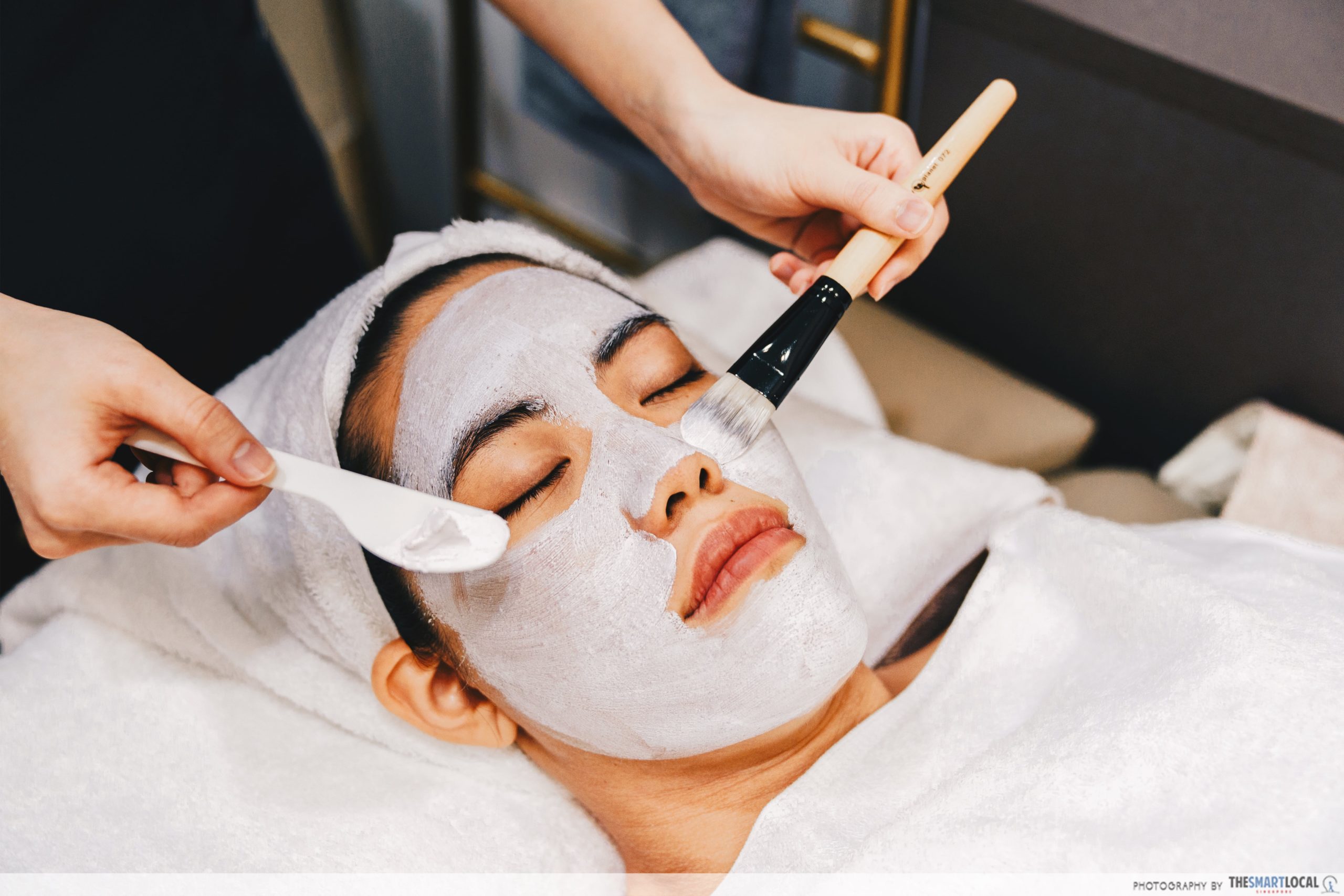 Thailand Elite is actually partnered with many establishments, including spas and gyms, where holders can receive generous discounts.
Thailand Elite is actually partnered with many establishments, including spas and gyms, where holders can receive generous discounts.
Those holding a Thailand Elite visa do not have to personally undergo 90-day reporting for the duration of the validity period of 5 years. The Privileged Entry visa also allows their members to apply for further memberships for family members.
Requirements
- A ฿600,000 (~USD20,000) application fee that must be paid upfront.
- Copy of your passport that has at least one year of validity after your application date.
- Colour ID photo.
- Completed application form.
- Copy of proof of relationship in the event that you’re applying for a family member as well.
Application process
Register at one Thailand Elite’s offices or online.
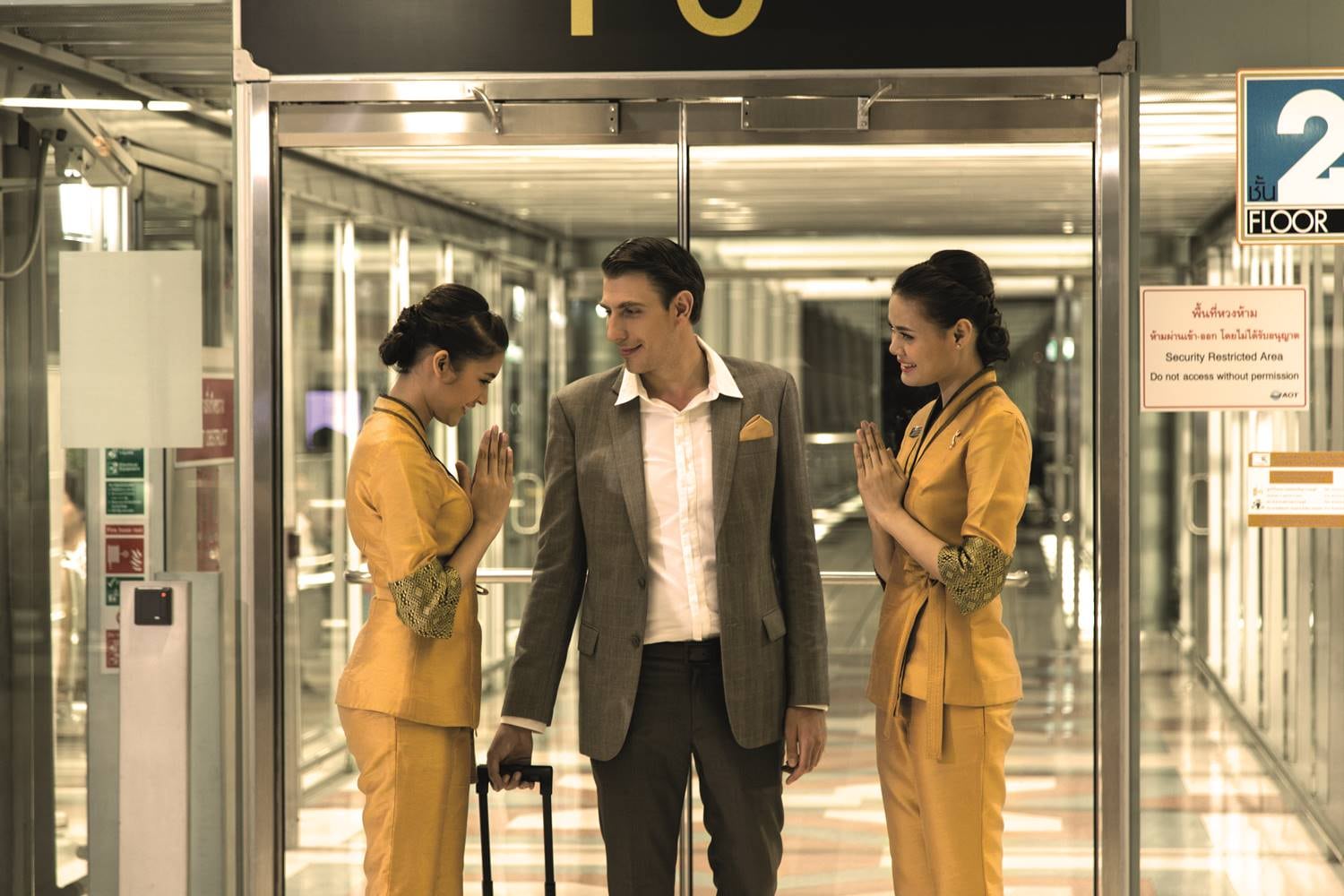 Holders of the Thailand Elite visa are escorted from their arrival gates through an expedited immigration line.
Holders of the Thailand Elite visa are escorted from their arrival gates through an expedited immigration line.
Image credit: Thailand Elite Visa
Renewal
Submit your documents to a visa agent, who will process your application for you.
A visa agent will also be representing you at 90-day reporting visits at the immigration office. You would just have to provide them with the following documents and make a reservation three days in advance:
- Your passport containing the Elite Visa.
- TM 6 form.
- TM 7 form.
- 2 x 2 inch photo taken within the past 6 months.
How much does it cost to retire in Thailand?
That is entirely up to you. There are certain financial requirements to retire in Thailand, but there are definitely ways for you to make that dollar – or baht – stretch. Below is a list of expenses that need to be accounted for when retiring in Thailand.
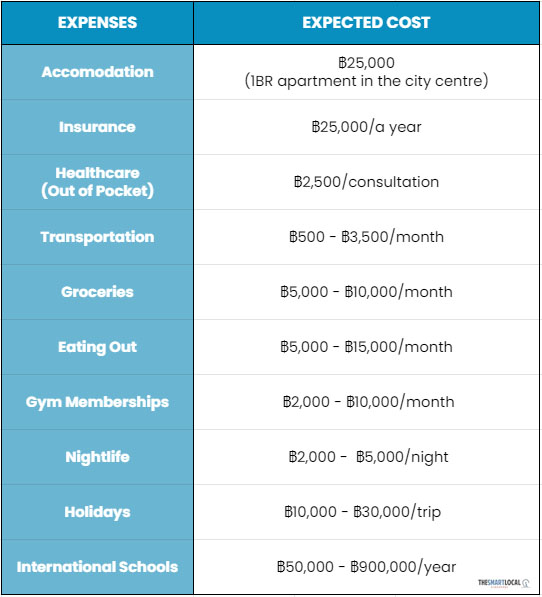
Essentials:
Accommodation – from ~฿15,000
Accommodation is an essential expense that you can have the most control over. With the wide range of properties available for rent and rent prices in Bangkok ranging from ฿15,000 (~USD483.72) – ฿350,000 (~USD11,200), retirees can basically have their pick.
To provide some context, the monthly payment for one bedroom in a newly constructed apartment in BKK’s city centre can cost up to ฿25,000 (~USD799.87) and two-bedroom units go for ฿40,000 (~USD1,280)/month.
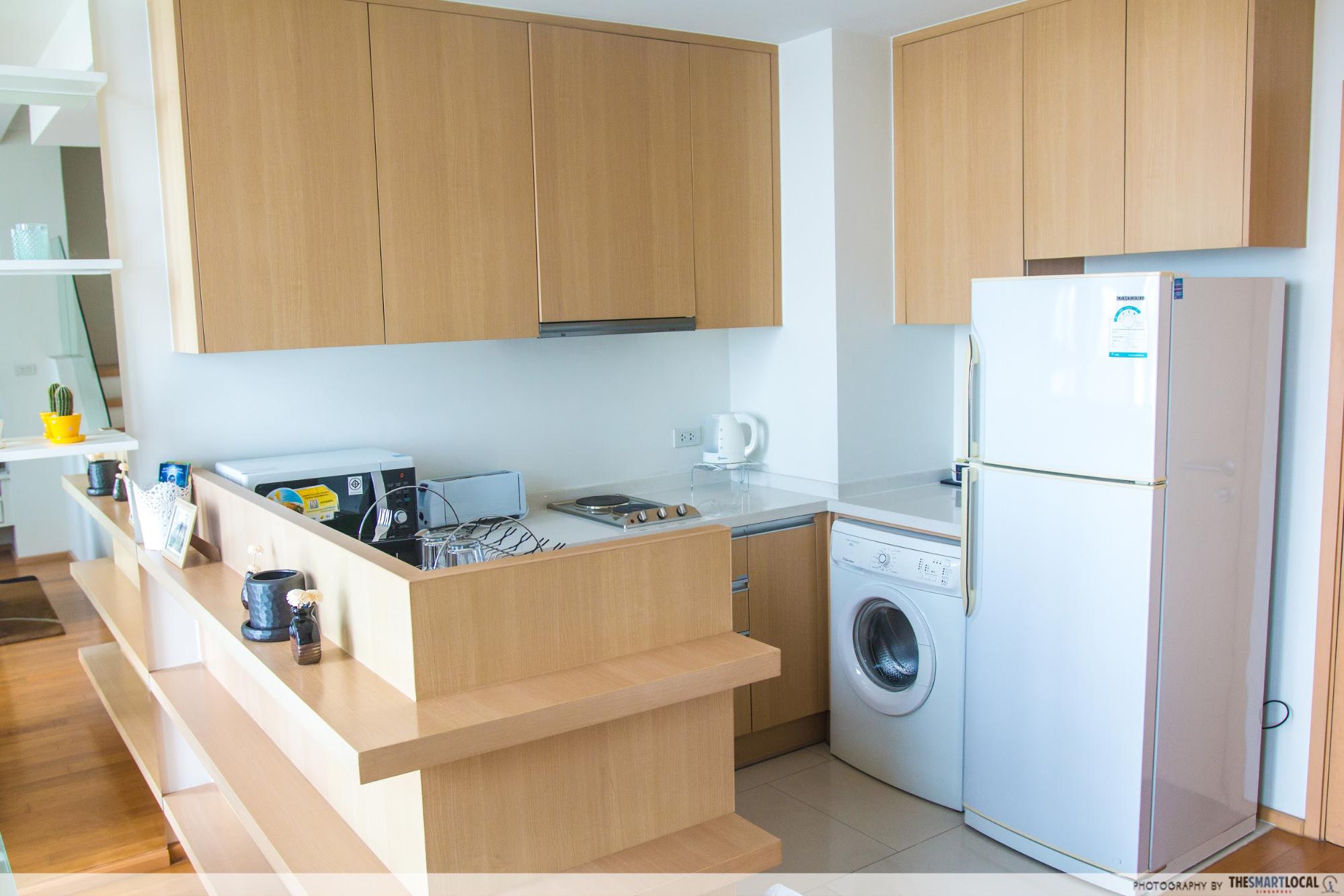
If you’re looking for an ultra-luxe penthouse with the amenities of a hotel, you’re in luck. Major cities like Bangkok are filled with hotel-based residences, such as Mandarin Oriental Residences, Ritz Carlton Residences and many more.
Rent prices for those start at ฿150,000 (~USD4,800) – ฿350,000 (~USD11,200), and include services like dry-cleaning and a concierge service and are sometimes even connected with malls such as ICONSIAM.
 This penthouse duplex at the Mandarin Oriental residences costs ฿250,000 (~USD7,962) per month
This penthouse duplex at the Mandarin Oriental residences costs ฿250,000 (~USD7,962) per month
Image credit: dotproperty
Cost-saving tip: For those who want a place in the city centre and close to the train line at a lower price, go for an older apartment.
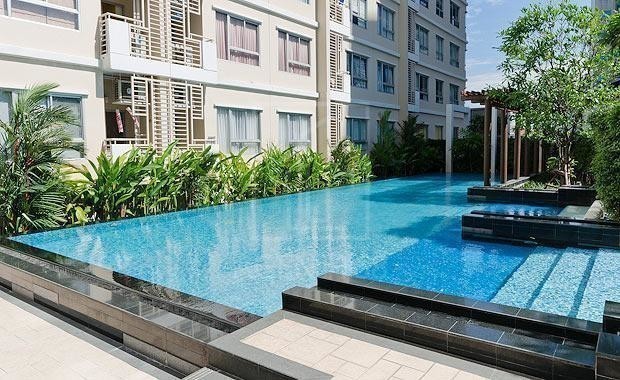 For ฿19,000 (~USD607.89) a month, I get this pool, 1BR, and a gym that’s open from 7AM – 9PM
For ฿19,000 (~USD607.89) a month, I get this pool, 1BR, and a gym that’s open from 7AM – 9PM
Image credit: hipflat
In my case, I pay ฿19,000 (~USD607.89) per month for a 50SQM 1BR apartment in the city centre that is 700M from the BTS station. The apartment across the street charges ฿30,000 (~USD960) for a similar unit that is smaller by 5SQM.
The price difference can be chalked up to various features and amenities offered, which is something you should look out for. For example, while both buildings offer a gym and swimming pool, the latter’s gym is 24H and has its pool on the rooftop with fountains.
Insurance – ฿10,000 to ฿150,000 per year

There are a myriad of health insurance options in Thailand offered by both local and international companies, making it possible for retirees to either transfer their existing plans, or add on travel insurance.
International insurance providers:
Insurance premiums for retirees at international brands like AXA, AIA, and Aetna start at ฿50,000 (~USD1,611) a year and include outpatient services, dental and semi-private rooms for inpatient care.
Insurance through Thai bank:
The easiest option, though, would be to go through your Thai bank provider. Prices can go as low as ฿10,000 (~USD322.37) for coverage of both inpatient and outpatient treatments. Plus, instead of sending your insurance claim to the company, who then verifies it and sends it to the bank, they are processed seamlessly as one entity.
Healthcare – ฿2,500 – ฿6,000 per visit
While insurance is definitely necessary, sometimes we do need to pay for doctors’ visits out of our pockets. In Thailand, private healthcare is extremely popular, convenient and accessible: most mid-range hospitals charge approximately ฿2,500 (~USD89) for a doctor’s fee, excluding treatment and medicine.
Transportation – ฿5,000 per month
If you decide to move to Bangkok, we’d highly recommend taking the Skytrain over other options considering the city’s traffic and gas prices. Depending on how often you use the BTS, you can buy a top-up pass that allows you to pay per station or per trip.
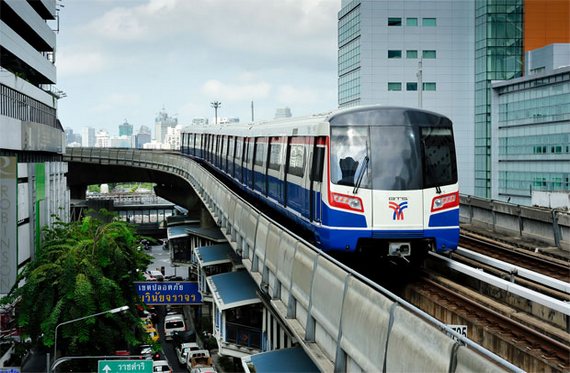 Image credit: TravelBud
Image credit: TravelBud
BTS fares: Fares start at ฿15 (~USD0.48) and go up to ฿55 (~USD1.94), depending the number of stations travelled.
BTS trip packages: The trip bundle for adults start at ฿465 (~USD15) for 15 trips and go up to ฿1,300 (~USD41.94) for 50 trips – these can be used at any station except for Silom and Sukhumvit extension lines.
For those who prefer private transportation like Grab or taxis, expect to spend at least ฿3,000 (~USD95.60).
Schools
Foreign children are welcome to attend local Thai schools. However, it should be noted that all modules will be taught in Thai, so it may not be the best option for those with limited-to-no grasp of the language.
There are plenty of international schools in Thailand. Depending on the class size, location and curriculum you choose – International Baccalaureate (IB), Advanced Placement (AP), International General Certificate of Secondary Education (IGCSE) – annual tuition ranges from ฿50,000 (~USD1,612) – ฿900,000 (~USD30,000).
Daily Expenses – ฿10,000 per month
Eating Out
A standard meal at shopping complexes in bigger cities can go for ฿300 (~USD9.68). But if you’re looking for cheap eats, some curbside restaurants sell dishes for as low as ฿70 (~USD2.26).
Grocery Shopping
There’s a wide range of options for grocery shopping in the city. For example, while foreigner-targeted supermarkets in Thailand, like Villa, will only carry imported products that are priced according to the origin country’s cost of living, plus import taxes. Case in point: I bought a bag of Ruffles for ฿150 (~USD4.84) that probably would’ve cost me at least USD2 less back in the States.

Wholesale markets like Big C, Tesco and Makro are also available across the country: I live in a two-person household where we spend about ฿3,000 (~USD96.75) a month at Makro for pantry essentials and another ฿3,000 (~USD96.75) for more specific ingredients from Villa.
On average, a two-person household would spend ฿5,000 (~USD160) – ฿6,000 (~USD190) on groceries at a wholesale store per month.
In between the two are grocery shops located within shopping malls. This is where you can get everyday essentials that you wouldn’t need to buy in bulk, like dairy and beef that would cost ฿20 (~USD0.64) more than at wholesale stores.
Miscellaneous
Physical fitness
Gym memberships range from ฿2,000 (~USD64.47) – ฿7,000 (~USD225), depending on the facilities and amenities.
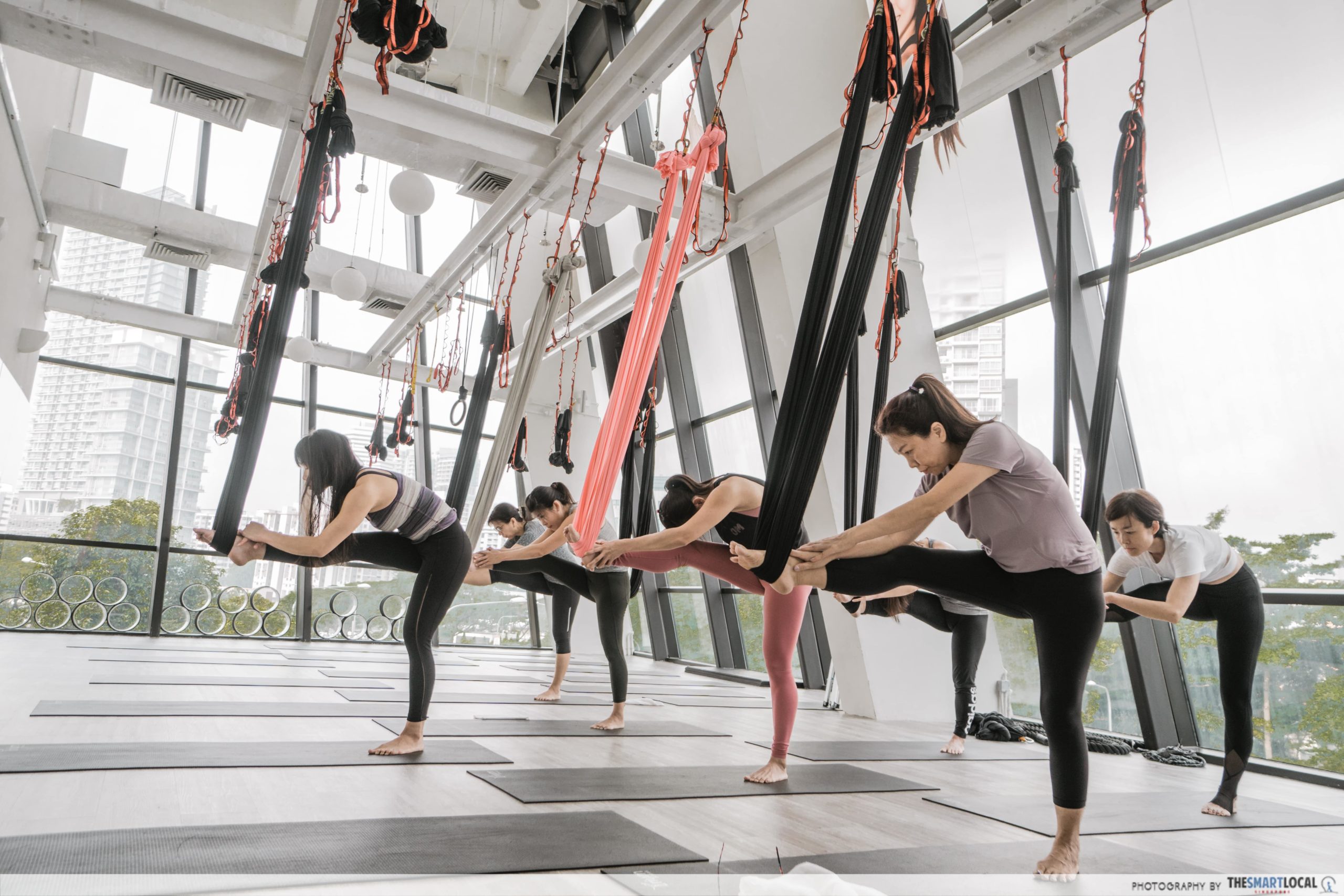
For those with more niche interests, private dance classes and personal training fees start at ฿2,000 (~USD64.47)/hour and can go up to ฿5,000 (~USD161.19).
Nightlife
This one is completely up to you: there are dive bars in cities that serve ฿100 (~USD3.22) beers, and hotel rooftop bars that serve cocktails for ฿600 (~USD19.34).

Luckily, there aren’t many establishments with cover charges, and many of the nightclubs in Thailand offer ‘buckets’ of alcohol that are very pocket-friendly.
Holidays
The beauty of living in a tourism-based economy is there are holiday packages for all budgets. Depending on the destination, the means of transportation and activities you choose to partake in during your holiday, a four-day vacation at a semi-luxury hotel can go as low as ฿11,000 (~USD354.51).
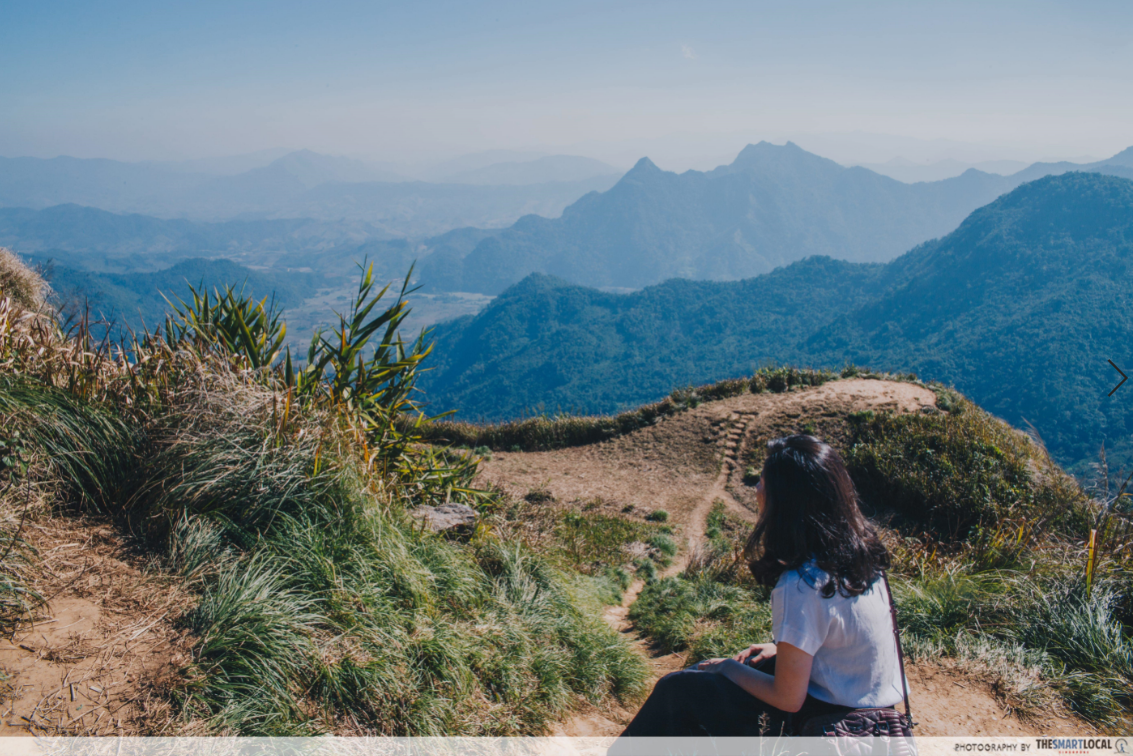
A trip to the north of Thailand like Chiang Mai can cost less than ฿5,000 (~USD159) for a week if you choose to stay in a homestay.
Thailand’s hotels have also been slashing their prices due to the Covid-19 situation, making luxe vacations more accessible to all. However, it’s important to note that domestic flights to most tropical destinations can range from ฿3,000 (~USD96.68) – ฿10,000 (~USD322.28) per round trip, depending on the airline.
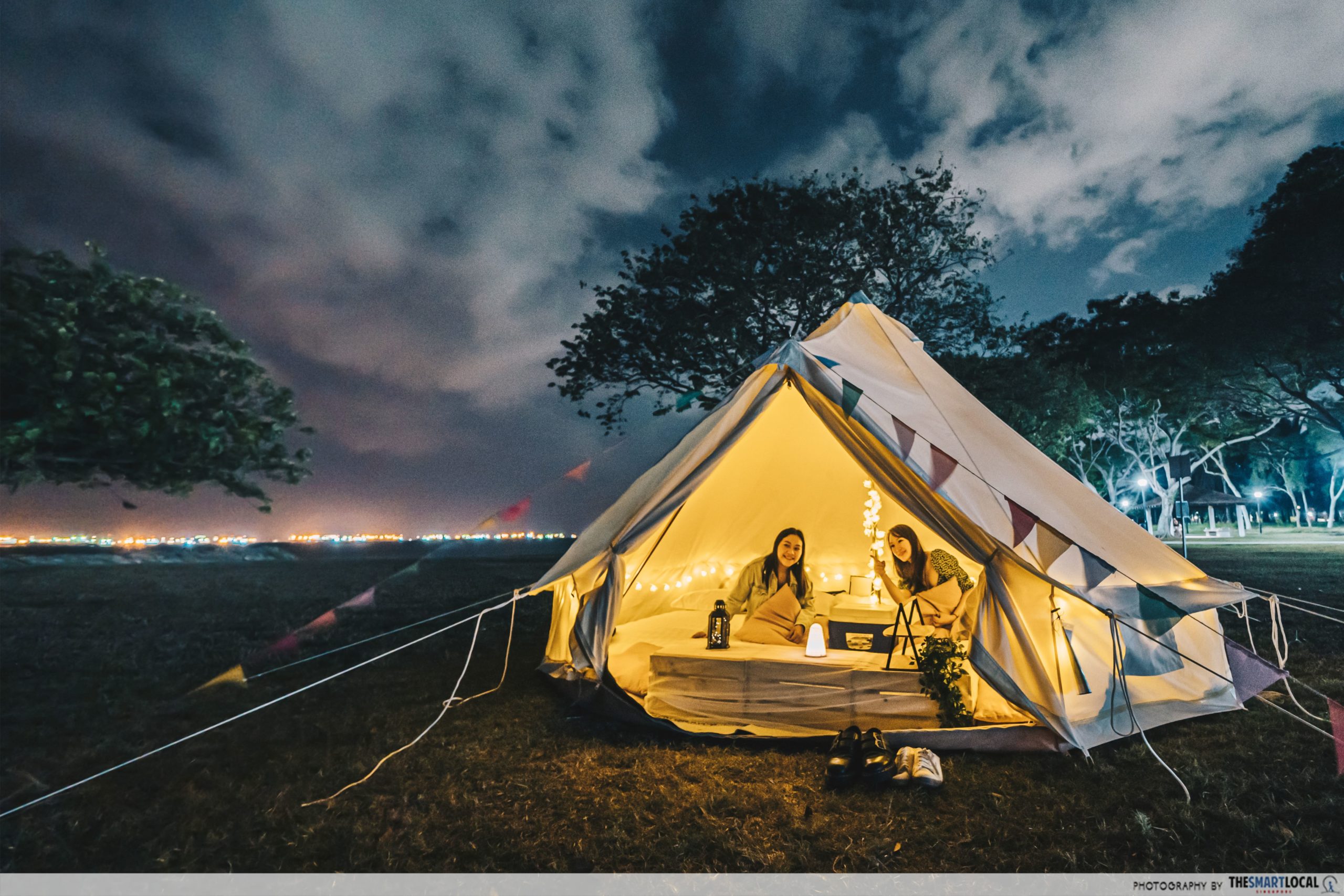 Some glamping sites can go for as low as ฿500 (~USD15)/night
Some glamping sites can go for as low as ฿500 (~USD15)/night
Photo for illustration purposes only
There are other transport options, like overnight buses and trains, that are safe and cheap alternatives as well. To put things into perspective, a roundtrip plane ticket to Koh Tao from Bangkok can cost ~฿10,000 (~USD322.28) during high season, while an overnight bus costs ~฿3,500 (~USD112.80) both ways.
Other useful resources
There are many resources available online for those who want to hear first-hand what it’s like retiring in Thailand. Our recommended forums include:
Thai Visa Forum: One of the oldest posting boards, whatever questions you have are probably answered on this forum.
Bangkok Expats: This Facebook group gives you a peek into the expat community in Bangkok – the questions they have, the businesses they own, and answers to questions from dating to retirement.
Farang Girls In Bangkok: A safe space for women, this Facebook group was founded in 2007 and has members of all ages and nationalities. In addition to valuable information about the city, members are also quick to support each other – I’ve also made a couple friends and joined networking groups through this forum.
Condos For Rent/Sale In Bangkok: The very best way to save on property in Bangkok is to look for older ones – the amenities may not be up to par with modern condotels, but they definitely are larger and in more central locations. This group has new listings multiple times a day and covers the entire city.
Retiring in Thailand
Retiring on a beach in Thailand is a dream for many, and understandably so. Hopefully, this guide will help you take the first steps towards making it a reality.
Our number one tip for ensuring that your stay in Thailand is a pleasant one is to think locally – observe the customs that make the people so sabai sabai and smiley. After all those years of hard work, it’s definitely high-time that you kick your feet up and enjoy the warm tropics.
Have suggestions for more articles like this? Let us know in the comments!
More lifestyle guides in Thailand:
- Buying a condo in Thailand as a foreigner
- Smart gadgets guaranteed to level-up your home
- Subtle Thai traits only locals do
- Useful Thai phrases
- Thai tips to winning the lottery
Immigration Division I
Address: 120 Chang Watthana 7 Alley, Thung Song Hong, Lak Si, Bangkok 10210
Telephone: +66-2-141-9889
Google Maps | Website
Ministry of Foreign Affairs, Thailand
The Ministry of Foreign Affairs provides a list of consulates and embassies in Bangkok as well as their contact information; the list for April 2021 is available for download here.
Address:443 Thanon Si Ayutthaya, Thung Phaya Thai, Ratchathewi, Bangkok 10400
Telephone: +66-2-203-5000
Google Maps | Website

Drop us your email so you won't miss the latest news.







